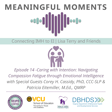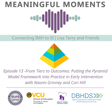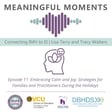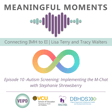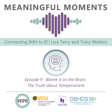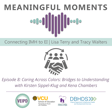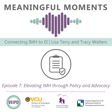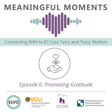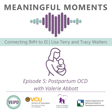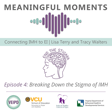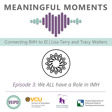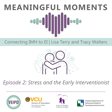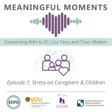
Meaningful Moments Meets the Odyssey
Join this special cross-collaboration between Meaningful Moments: Connecting Infant Mental Health to Early Intervention and The Odyssey: Parenting. Caregiving. Disability. Hosts Lisa Terry and Erin Croyle blend professional expertise and lived experience to have an honest, compassionate conversation about infant mental health, the power of relationships, and supporting the social-emotional well-being of all families. Together, Lisa and Erin explore how meaningful connections—between caregivers, children, and communities—can empower families and help children thrive.
Resources:
Meaningful Moments Podcast: https://www.veipd.org/main/meaningful_moments.html
The Odyssey Podcast: https://centerforfamilyinvolvementblog.org/
CFI: https://cfi.partnership.vcu.edu/
VEIPD: https://www.veipd.org/main/index.html
Supporting Families In Early Intervention: https://veipd.vcu.edu/media/veipd/pdfsarchives/supporting-families-in-ei.pdf
